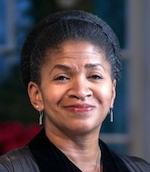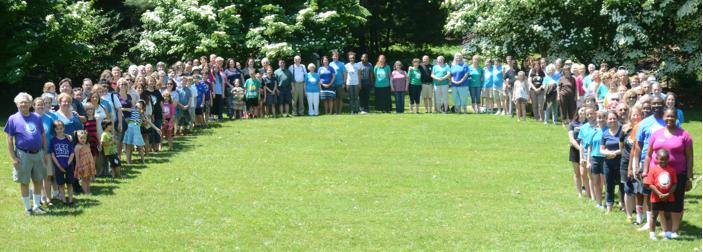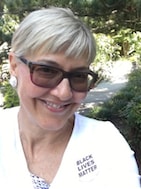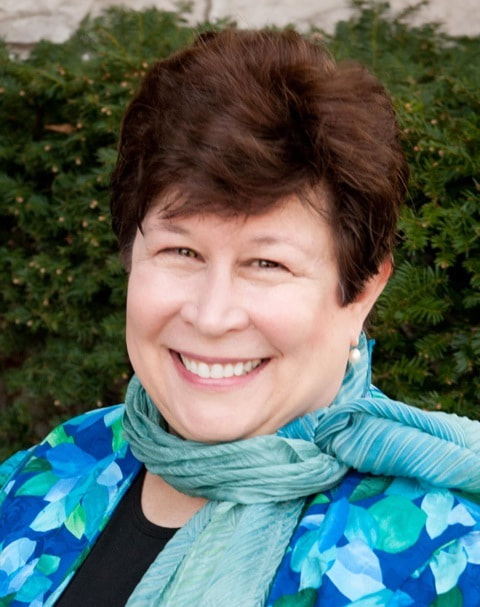In the early 1950s, several members of First Unitarian Church of Baltimore, who knew each other casually, were living in Harford County. The rigors of traveling with their children to Baltimore and back each Sunday led them to form a religious group at home. After meeting regularly in each others' homes for a time, the group decided to apply to headquarters in Boston for membership in the American Unitarian Association (AUA). In the spring of 1957 our Fellowship was accepted by the AUA Board.
Members soon realized that they needed a regular meeting place and began to look for accommodations. The Fellowship found its first home in the Seventh Day Adventist Church at Wilna, which its owners used on Saturdays and let us use on Sundays. The group prospered modestly and began its social service to the community. We advertised our convictions about racial equality, and were gratified to receive a positive response from Harford County minorities. Out of this connection grew the Human Relations Commission, established by Harford County's Charter.
In September 1959, we obtained a loan and purchased a two and one half acre tract of farmland on what is now Lee Way in Bel Air. Two years later we were able to buy from Aberdeen Proving Ground two surplus Army buildings, which were moved to the Lee Way site. Hundreds of hours of hard work were required of members to turn these structures into a pleasant, attractive and functional home. Photographs now hanging in our library give an idea of the quality of this adventure.
Since we knew at first hand the difficulties of finding appropriate meeting space, we determined to offer our building as freely as possible as a means of serving the community. Over the years, a Lutheran congregation, a Christian Scientist church, an Episcopal group, and many community organizations met there.
Having no minister, we arranged Sunday services in various ways. We called upon ministers of other Unitarian churches to supply the pulpit periodically. We had many stimulating lay speakers. Members of our own Fellowship frequently spoke as well.
UUFHC welcomed the
Reverend Geoffrey Drutchas
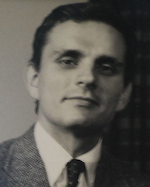 as half-time extension minister in September 1984;
he concurrently served the UU Congregation of York, Pennsylvania.
Rev. Drutchas was raised as a UU in Michigan and was very interested in UU history, especially regarding Rev. William Ellery Channing’s
Baltimore sermon for the ordination
of Jared Sparks—who lived for a time in Havre de Grace.
Geoeff's sermons were always well thought out and polished,
and he had congregational talkbacks after the service so that members could continue the discussion.
During his tenure here he was active in setting up a summer meals program for children who were eligible for free summer meals.
as half-time extension minister in September 1984;
he concurrently served the UU Congregation of York, Pennsylvania.
Rev. Drutchas was raised as a UU in Michigan and was very interested in UU history, especially regarding Rev. William Ellery Channing’s
Baltimore sermon for the ordination
of Jared Sparks—who lived for a time in Havre de Grace.
Geoeff's sermons were always well thought out and polished,
and he had congregational talkbacks after the service so that members could continue the discussion.
During his tenure here he was active in setting up a summer meals program for children who were eligible for free summer meals.
Rev. Drutchas was our first dedicated minister. Prior to 1984, UUFHC was a lay-led Fellowship with occasional guest ministers and for one period, a minister-on-loan for several weeks. With the end of Rev. Drutchas's tenure, we felt we had the resources to call a full-time minister.
In May 1988, the
Reverend Alice Blair Wesley
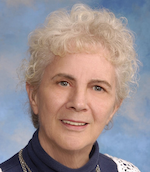 accepted our call.
The growth of our Fellowship under the able ministry of Rev. Wesley soon made it obvious that we had outgrown our original building.
Early on we learned that the presence of wetlands on the Lee Way property virtually ended the possibility of building expansion.
We therefore began a search for a suitable affordable site elsewhere.
Thus began a long and arduous process that finally gave us the beautiful home we have today on Churchville Road.
accepted our call.
The growth of our Fellowship under the able ministry of Rev. Wesley soon made it obvious that we had outgrown our original building.
Early on we learned that the presence of wetlands on the Lee Way property virtually ended the possibility of building expansion.
We therefore began a search for a suitable affordable site elsewhere.
Thus began a long and arduous process that finally gave us the beautiful home we have today on Churchville Road.
There is an interesting story of how this came about.
One day Rev. Wesley was driving along Churchville Road when she noticed a man working in his garden.
She stopped to ask him if he would be willing to sell this land to our church. Well, it was serendipity.
The man was
Mr. Walter Banks,
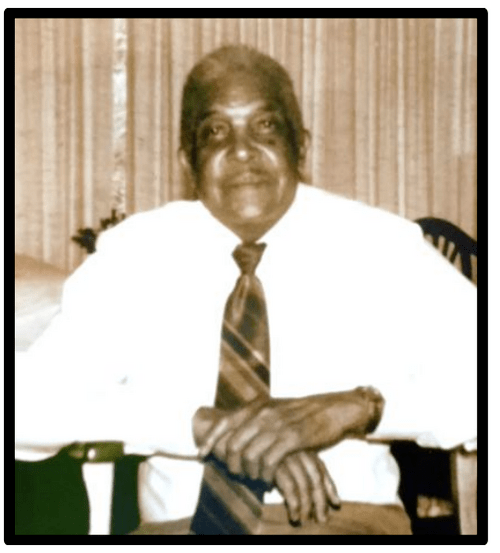 a leader of the African American community, who was long familiar with us,
and many of our founding and early members, due to our work for racial equality and civil rights in the county.
He and his wife Maudeline were delighted for the opportunity to help those who, virtually from the beginning,
had openly shared their struggles during the civil rights era.
Through the generosity of Mr. and Mrs. Banks, a contract was worked out that enabled us to purchase the
valuable three and one half acre site for a very modest price.
a leader of the African American community, who was long familiar with us,
and many of our founding and early members, due to our work for racial equality and civil rights in the county.
He and his wife Maudeline were delighted for the opportunity to help those who, virtually from the beginning,
had openly shared their struggles during the civil rights era.
Through the generosity of Mr. and Mrs. Banks, a contract was worked out that enabled us to purchase the
valuable three and one half acre site for a very modest price.
The long process of fund-raising, choosing an architect, working out a suitable plan, hiring a contractor,
managing our funds, and supervising construction, culminated once again with many hundreds of hours of
"sweat equity" donated by our members to carry the project to completion.
In March of 1996, Rev. Wesley retired amid much appreciation for a job well done.
In August of that year, the
Reverend Kathie Davis Thomas
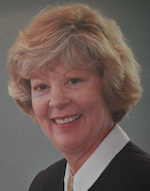 became our Interim Minister for a constructive period of two years.
In August of 1998, the
Reverend Lisa G. Ward
became our Interim Minister for a constructive period of two years.
In August of 1998, the
Reverend Lisa G. Ward
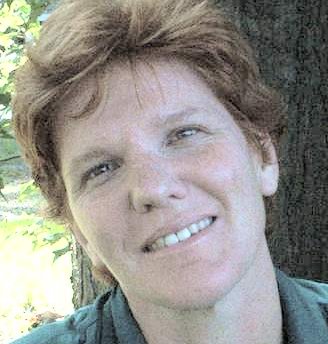 came to us as our full-time Extension Minister,
and became our called minister in April of 2000.
came to us as our full-time Extension Minister,
and became our called minister in April of 2000.

